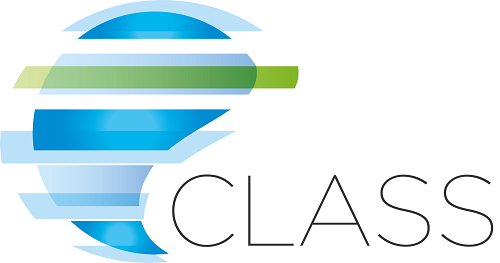CLASS- bénévolat et développement durable - 2019-2026


- Scope
- Objectives
- Results
- Experimentation
- European networks
- French networks
- Publications & Presentations
Introduction
I. Scope
In the CLASS project, scientific cooperation between four European partner countries is developing tools to combat early school leaving and to promote the 8 key competences agreed in the European framework (EC, 2006 & 2018). The CLASS project is a continuation of the SCHOLA project (https://www.schola-erasmus.eu/). SCHOLA demonstrated the value of an innovative approach to involving students through extracurricular activities such as volunteering.
The CLASS project aims to continue the virtuous circle initiated by the SCHOLA project in the European educational systems, but also in the educational structures of the Third Sector in Europe and worldwide, by building a multidisciplinary network that supports education as a catalyst for sustainable development.
The United Nations definition (Agenda 2030) introduces the concept of "sustainable development" without its economic dimension but closely linked to the dimensions of social inclusion and the environment.
II. Objectives
The aim of the CLASS project is to provide teachers with new pedagogical tools and approaches adapted to new needs in order to involve organizations and companies with different horizons, not only in education, in a broader vision of education that focuses not only on knowledge and skills but also on common universal needs and values.
This will work on the "5 P's" in Agenda 2030: people ; planet ; prosperity ;peace ; partnership.
The European CLASS project team will select further Agenda 2030 objectives on the basis of perceived priorities and organize school and out-of-school educational activities (e.g. volunteering) in cooperation with experts from third sector organizations on the themes chosen by the project. The involvement of these non-profit is very important in order to establish a link between the project team and the stakeholders it addresses.
Links will be established between schools and the field of sustainable development to promote not only school education but also the role of teachers and students in building a better world. The activities carried out in school must be linked to those carried out in the related third sector structures - externally, when they are carried out as extra-curricular activities, but also internally, by integrating them into the compulsory school curriculum as socio-cultural activities.
III. Results
IV. Experimentation
With the Coronavirus pandemic, schools were closed, many associations had to stop their activities. In order to adapt to exceptional conditions, schools and associations have developed remote activities- virtual classes for schools and virtual activities/missions for associations. The experiment of the CLASS had to adapt to exceptional circumstances by offering a class of middle school students, as part of their compulsory internship of 3rd (Discovery of the professional world) to train them in a specific mission: "Awareness campaign on disinformation" so that they can in turn intervene, as a volunteer, with their comrades to make them aware of the disinformation. Saint-Pierre Institut (saintpierre91.org)
In partnership with the Institut Saint Pierre de Brunoy (Essonne), the iriv team proposed an experiment of the Class project that took place from Monday 3 to Friday 7 May 2021. Middle school students in 3rd grade classes were trained during their week of internship in disinformation to be able in turn to sensitize their peers to this theme that can have very negative consequences on their academic success (dropping out, depression, ...) ; threats of intimidation or cyberharassment have developed especially among young people who need to be prevented. The middle school students are accompanied by their teachers who are involved in the experiment by making them react to the content of the training, by making a link with their respective courses, by allowing the middle school students to be able to express themselves. They will have all the slides prepared for the experiment that are enriched by reactions throughout the week.
The training programme combines a more theoretical work in the morning by working on the notions, the mechanisms at work, the personal experiences of young people and practical cases; with practical work; in the afternoon, in sub-sessionsgroups, young people are responsible for designing teaching materials to set up a campaign to raise awareness of disinformation among their peers.
V. European networks
VI. French networks
VII. Publications & Presentations
← Back























